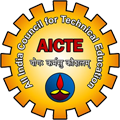
The Diploma in Aviation Hospitality and Aviation Management is a specialized one-year program aimed at preparing students for various roles within the aviation and hospitality industries. This comprehensive diploma program places a strong emphasis on both theoretical knowledge and practical skills to ensure that graduates are well-prepared to succeed in their respective careers.
Eligibility Requirements
To be considered eligible for this popular program, prospective students must meet the following criteria:
- Successful completion of the 10+2 examination from a recognized board, regardless of the chosen stream.
- Age between 18 and 26 years.
- Some aviation colleges may conduct entrance examinations, such as JEE or AEE, to select candidates based on their performance.
The best aviation college in Kolkata offers a range of professional aviation courses, including the popular Diploma in Aviation Hospitality and Aviation Management. This program serves as a stepping stone for aspiring individuals to achieve remarkable success in the aviation industry.
Today, let's delve into the practical elements that the Diploma in Aviation Hospitality and Aviation Management program encompasses
Language and Communication Skills
The program focuses on enhancing language proficiency, particularly in English, which serves as the international language of aviation and hospitality. Effective communication is a fundamental skill for providing exceptional customer service.
Uniform and Grooming Standards
During practical sessions, students are expected to adhere to industry-specific uniform and grooming standards. This practice helps them understand the significance of presenting a professional and well-groomed appearance.
Wardrobe and Personal Appearance Workshops
Workshops are conducted to educate students on maintaining a professional appearance. Topics covered include grooming, adhering to dress codes, and practicing good personal hygiene.
Customer Service Excellence
Practical training in customer service is pivotal, especially for aspiring air hostesses. Students learn in-flight services, such as passenger interaction, addressing inquiries, handling complaints, and delivering a high level of service.
Airport and Airline Operations
Hands-on experience is gained in comprehending the intricate operations of airports and airlines. This may include check-in procedures, security protocols, baggage handling, boarding processes, and coordination with various departments to ensure smooth operations.
Hospitality Skills
Practical training encompasses essential hospitality skills, including effective communication, problem-solving, conflict resolution, and maintaining a professional attitude. These skills are invaluable in creating positive experiences for passengers and guests.
Guest Services and Passenger Handling:
Candidates learn how to manage guest services and passenger handling, which includes assisting passengers with special needs, addressing complaints, and ensuring passenger comfort during their travel experience.
Simulation Exercises and Mock Scenarios
The program incorporates simulation exercises that simulate real-world scenarios, such as those faced by flight attendants and airline check-in agents. These simulations involve handling emergencies on flights, practicing crowd management, or managing challenging customer interactions.
Internships
Mandatory internships or practicum experiences provide students with the opportunity to work in airports and other aviation and hospitality environments, allowing them to apply their theoretical knowledge to real-world situations.
Aviation Regulations and Compliance
Practical training in crisis management and security procedures equips students with the skills to handle emergencies, respond to security threats, and ensure the safety of passengers and personnel.
Leadership and Teamwork
Students often engage in group projects and teamwork exercises to develop leadership skills and gain insights into working collaboratively within diverse teams.
Industry Software and Technology: Practical training may involve using industry-specific software for reservations, ticketing, customer management, and more. Familiarity with these tools is crucial for aviation and hospitality roles.
Networking Opportunities
The program facilitates networking with professionals in the aviation and hospitality sectors, creating potential job opportunities for students.
Diploma in Aviation Hospitality and Aviation Management offers practical training that closely mirrors real-world aviation and hospitality environments. This hands-on experience equips students with the skills, confidence, and industry-specific knowledge needed to excel in roles related to customer service, operations, management, and more within these dynamic sectors.
 CCPTR,
CCPTR, 

 National Skill Development Corporation
National Skill Development Corporation Ministry of Education
Ministry of Education MoE's Innovation Cell
MoE's Innovation Cell Institution’s Innovation Council
Institution’s Innovation Council AICTE
AICTE


Leave a comment